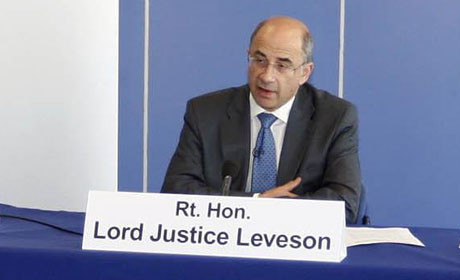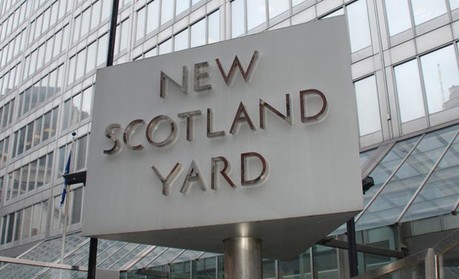Follow our live blog of today’s (July 19) Commons select committee appearances by former Metropolitan Police commissioner Sir Paul Stephenson and former assistant commissioner John Yates, and the director of public affairs Dick Fedorcio.
You will need to refresh this page for updates.
12:43pm: Julian Huppert says that he cannot find any public declaration of Stephenson’s hospitality at Champneys.
Stephenson says that he put it into the hospitality register, and it will be published in due course.
12:42pm: Stephenson is giving assurances to Keith Vaz that he never met Andy Coulson and Neil Wallis together.
He adds that Wallis had “a minor part-time role” through which he received a small amount of advice.
Vaz asks whether Stephenson was consulted before Wallis was employed.
Stephenson says he was, along with Dick Fedorcio, but stresses that he now regrets that contract as it has become “embarrassing”.
He says that he was confident Fedorcio would conduct the proper checks on Wallis at the time of employment. Stephenson says that he was not involved in the procuremnt process of Wallis, and did not know that Wallis’ daughter was also employed by the Metropolitan police, and only found out at the weeklend.
12:41pm: Labour’s David Winneck asks Stephenson about the assurances he gave to the Guardian in July 2009, after the newspaper published fresh allegations about the case.
Stephenson says he suggested that Guardain editor Alan Rusbridger speak directly to John Yates.
12.40pm: Stephenson is asked if there are question marks about a person involved receiving such hospitality? Wouldn’t a superior be asking questions about this sort of relationship?
Stephenson said it was declared and put in his hospitality register, even though that was not needed. It was not a secret, he said.
12:39pm: David Winneck says he is not questioning Sir Paul’s integrity. But asked, leaving aside Wallis’ position, was there not a situation which was inappropriate for any police officer to receive such substantial hospitality.
Stephenson says he does not think so. He says the owner of Champneys is a family friend connection, he paid for many treatments and it enabled him to get back to work very quickly. “I think it was damnedly unlucky Wallis was connected, he said.
12:38pm: Stephenson says the connection to Champneys was a family connection, and that it was not inappropriate but “damnably unlucky”.
12:37pm: Stephen McCabe asks Stephenson about his knowledge of Wallis’ business connection with Champneys, where Stephenson stayed after accepting a week’s free hospitality there.
Stephenson says he knew of no one that knew Wallis was conected with Champneys.
McCabe asks whether, “in normal circumstances”, he should expect his senior officers to know that Wallis was connected with Champneys, especially given that John Yates said he was a “personal friend” of Wallis.
12:35pm: Nicola Blackwood asks Stephenson about his statement that he has no reason to suspect Wallis was involved in phone hacking. And yet in the year he met Wallis, the ICO report was released stating that there was a “widespread” market in police information to journalists.
News of the World was listed in the report, with 228 transactions. Blackwood asks, do you not think that should have alerted you to the possible that Wallis could have been involved?
Stephenson says that Wallis was not named, and reiterates that his job was to prioritise risks. He looked at high-profile risks.
He says there was no reason for the ICO report to be on his desk, above the nightstalker case or the Stephen Lawrence case.
12:33pm: Julian Huppert asks about the morale of the Metropolitan Police going forward.
Says he was stopped by a Metropolitan Police officer who said he was embarrassed by the senior officers.
Huppert asks about what his successor can do to improve morale.
Stephenson says he has spoken to many police officers following his resignation who have spoken about their pride, and says it is proper to walk away before interfering with an investigation.
12:31pm: Stephenson is asked why, prior to his resignation, he did not tell the prime minister about Wallis.
Stephenson says he “would not want to open to the prime minister or anyone else to such compromise”.
Adding that he has not told the prime minister or home secretary about any other suspects in the case.
Stephenson says he would also not want to compromise the mayor, and so did not tell him about the arrest of Rebekah Brooks in advance either.
12:29pm: Bridget Phillipson asks Stephenson whether he should have been alerted sooner to the issues concerning Wallis.
Stephenson says he could not have been alerted sooner, that there was no one able to suggest there was a potential conflict of interest, except for Wallis himself, if indeed he could.
The contracting of Wallis, he says, was of no relevance until we knew he was a suspect. And to go public with that before we had evidence would compromise him.
12:27pm: Stephenson: “Prior to Wallis becoming a name related to phone hacking, I had never heard him connected to hacking.
“Why would I raise with anyone a very minor contract? I had no reason to suspect he was involved.”
12:25pm: Stephenson is asked about not disclosing the information about Wallis to the home secretary, also.
“Why was this a matter that you felt you could not disclose? This has been interpreted negatively.”
12:23pm: My understanding is that it was exactly the advice from a senior officer in Number 10 that we “don’t compromise the pm”. Which is why, he says, he did not tell Cameron about Wallis.
“I work very hard not to compromise people.”
“It was only several weeks ago that I knew Wallis was involved, and only last week that I knew he was a suspect.”
12:21pm: Reckless asks Stephenson about his non-disclosure of the employment of Wallis,
Stephenson says he had no reason to doubt Wallis, or connect his name with phone hacking.
“I had no reason to disclose a very minor contract with someone who was advising my DPA.”
12:20pm: Responding to Reckless, Stephenson is describing his work as commissioner, saying that he “manages risk”, rather than investigating crime.
He says that he had close involvement in the case of the nightstalker, and the case of Stephen Lawrence, but never asked any questions about phone hacking, says he had no reason to suspect the investigation was not going well.
12:19pm: MP Mark Reckless asks Stephenson if he is surprised that his comments are being interpreted as an attack on Cameron.
Stephenson says he cannot control the press and reiterates that he made no such attack on the prime minister.
12:18pm: Stephenson says he was trying to draw the contrast that he had no reason to doubt Wallis’ integrity or to link him with hacking.
“I meant to impune the pm or no one by it. I just meant to give an example that Wallis’ name was never related to hacking.”
12:16pm: Stephenson says that “we live in a world in which the media speculates, and I was taking no such swipe at the prime minster”.
“Of course that the employment of Coulson and the employment of Mr Wallis was different.”
12:15pm: Vaz asks Stephenson about his comment about David Cameron, and whether he was “taking a swipe” at the prime minster, which has “excited a lot of comment“.
12:13pm: Vaz has asked whether anybody asked him to go. Stephenson says no, that the mayor felt the resignation was wrong and that the home secretary was very upset.
He took the decision against the advice of his colleagues and his wife, he says.
12:12pm: Vaz says that when he spoke to Stephenson last week, resignation was not in his mind. Asks him when he made up his mind when he had to go.
12:11pm: He says, “clearly there were significant stories about me,” and says “we are in extraordinary times”.
“In the run up to the Olympic year, if there is going to be continuing speculation about the commissioner, then if I was going to do something I had to do it quickly.”
12:10pm: Stephenson says that he made it very clear when he took the post he would never allow the story to become about him.
12:09pm: Committee chairman Keith Vaz begins questioning Sir Paul Stephenson.
Vaz asks Stephenson why he resigned, despite claiming that he had “done absolutely nothing wrong” and having no knowledge of impropriety.



